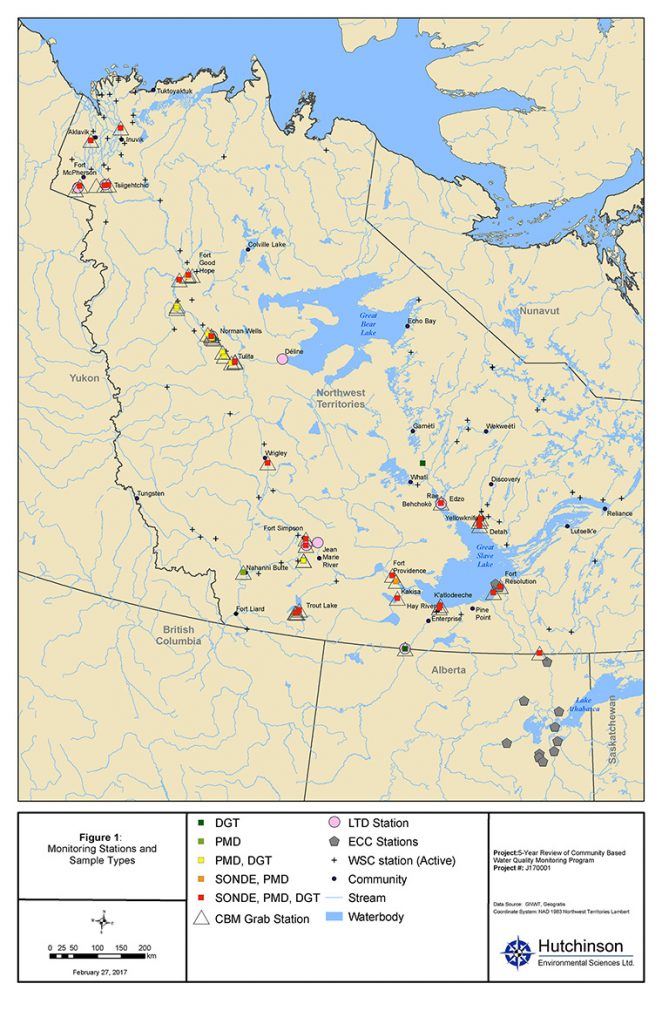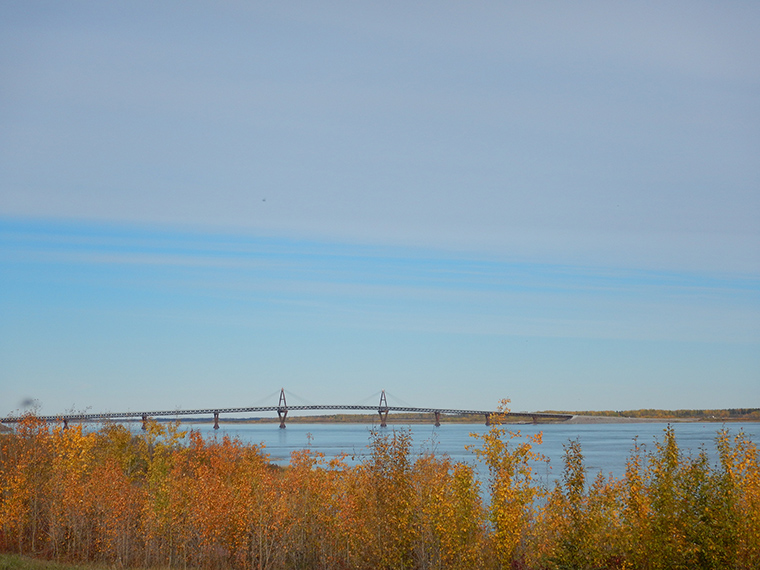In an effort to build community capacity regarding water quality monitoring and establish monitoring results that would be meaningful to community members, the Government of the Northwest Territories started the Community-Based Monitoring (CBM) Program in 2012. The goals of the CBM Program needed to align with the Northern Voices, Northern Waters: NWT Water Stewardship Strategy.
To do so, the Department of Environment and Natural Resources contracted HESL to conduct an analysis and review of the program based on the first five years of results.
Our 5-Year Review report documented our analysis of the data and provided an evaluation of the water quality status in technical and plain language reports to:
- Evaluate whether the monitoring program was achieving its stated goals.
- Determine whether the program used an adequate and effective methodology.
- Give recommendations for changes to the program going forward.
Highlights of our analysis showed:
- The strong domination of natural forces, such as flow patterns, watershed geology, ecoregion, climate and forest fires on water quality.
- Increasing trends in several dissolved substances, which may point to an impact of local development.
- Site-specific studies would better address local concerns, such as the impact of spills, bridge construction, and sewage discharges.
- That the impacts of climate change are already apparent in the Peel River watershed and possibly the Nahanni Butte watershed.
Our review determined that the CBM program met its intent to train local community members in monitoring techniques and to collect technically solid and relevant data to answer community questions.
We provided recommendations on sampling design, laboratory analysis and data management, which will further improve the efficiency of the program and the quality of the dataset.
With an ongoing collection of high quality and meaningful data, there will be an opportunity to further improve understanding of the status and trends in water quality in NWT surface waters that matter to its residents.
“HESL’s northern experience allows them to be effective because they understand the cultural and operational norms of the regulatory system and how our team works. Their expertise in many areas enables them to complement and support our team in the best way possible.”
Ryan Fequet – Executive Director, Wek’ èezhìi Land and Water Board
Project Lead(s):
Client: Department of Environment and Natural Resources, Government of the Northwest Territories
Location: Mackenzie Valley, Northwest Territories
Sector: Government
Date of Project: March 2017 – October 2017
Services Provided:






